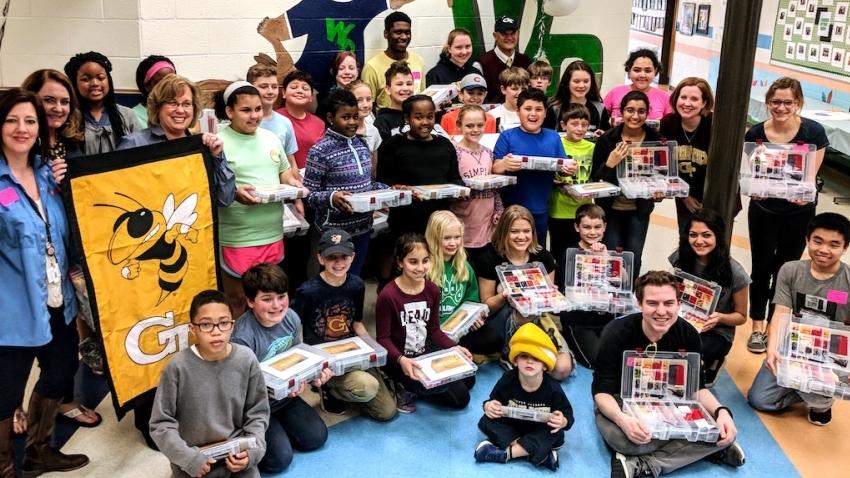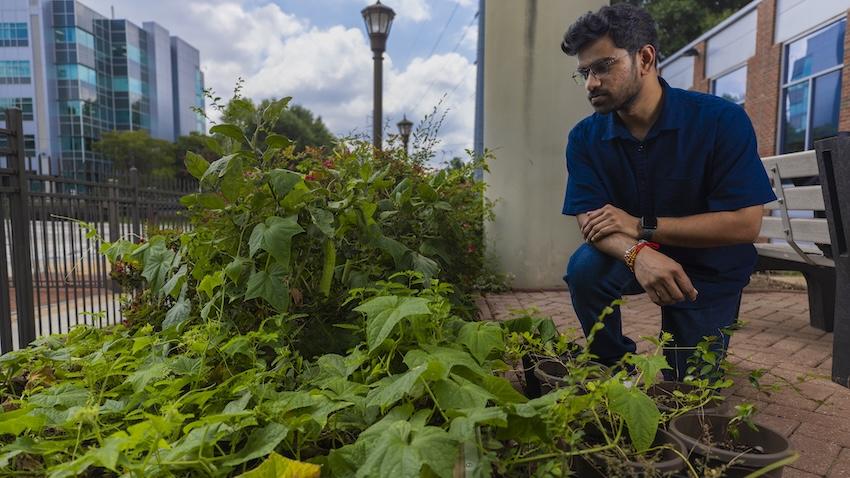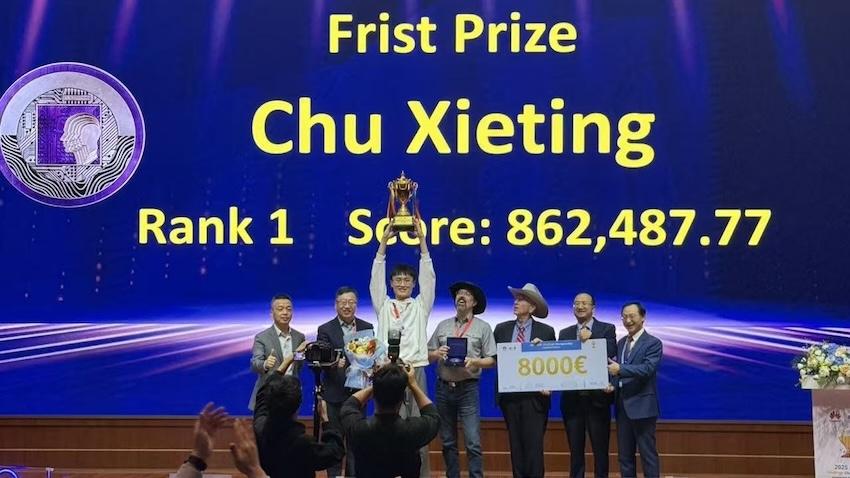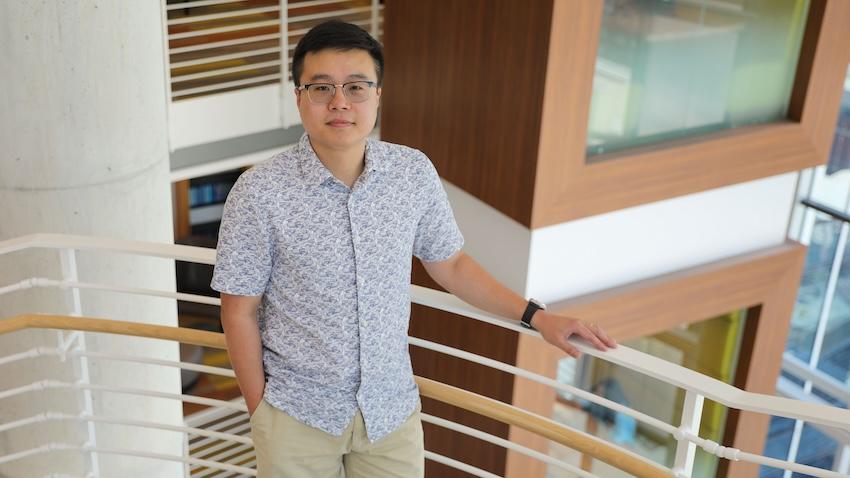
Georgia Tech and Yamaha Step Up for STEM at Local School
Georgia Tech recently partnered with Yamaha Motor Manufacturing Corporation of America (YMMC) to supply 26 Lego WeDo robotic toolkits and lesson plans to Willis Road Elementary School in Coweta County, Georgia.
YMMC, one of the county’s largest employers, and Georgia Tech’s College of Computing collaborated to buy the robotic kits and to develop learning modules for third-, fourth-, and fifth-graders at the school.
Students and teachers from the school's gifted program received the kits during an event at the school held Feb. 16. Others in attendance were YMMC Senior Analyst Melanie Sewell (GT ISYE '93), Willis Road Elementary School Principal Charles Smith, and lead undergraduate teaching assistant Ruchi Banerjee.
Why STEM is Important
The investment is part of the College’s Computing and Engineering with Legos and Scratch (CELS) program.
“The need for well-trained workers versed in computer science and engineering is growing exponentially,” said Mary Hudachek-Buswell, Georgia Tech computer science lecturer and CELS program developer.
“But the lack of STEM (science, technology, engineering, and math) exposure at an early age leads to few students choosing a career in these disciplines. This is particularly true for female and minority students,” she added.
“It is important that our young people are exposed to the STEM disciplines in a fun and innovative way, peaking their interest early will have a positive impact on helping create the next generation of scientists and engineers,” said Phil Trickey, vice president of YMMC.
Hudachek-Buswell and her undergraduate student teaching assistants at Georgia Tech have developed five lessons for each grade level based on the Lego WeDo toolkits and the programming language Scratch.
Ultimate Goal
The Lego toolkits are used in problem-based learning and feature motors and sensors that allow students to build, explore, and study machines and mechanisms. Scratch is an easy-to-use programming language that students can use to engage and control the robots that they design.
“Once we received feedback from the REACH teachers and the students, we’ll develop another set of 15 lessons,” said Hudachek-Buswell.
“In the short term, we hope to bring this program to more schools. Ultimately though, computer science and engineering modules need to be formally added to the public elementary school system in Georgia.”
YMMC is located about 30 minutes south of Atlanta in Newnan, Georgia, and employs more than 1,500 people in its facility, which consists of three plants.


